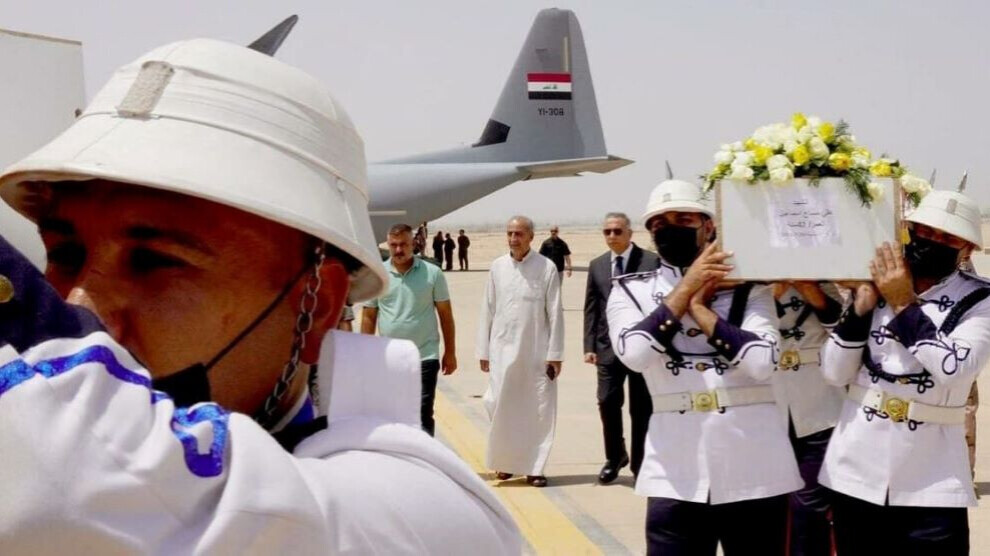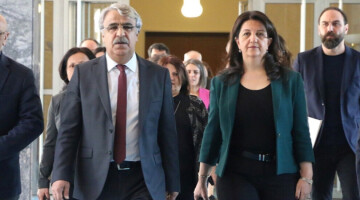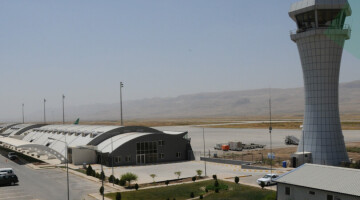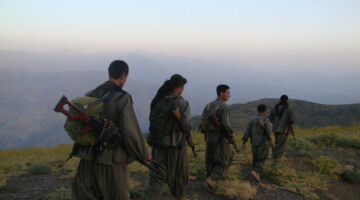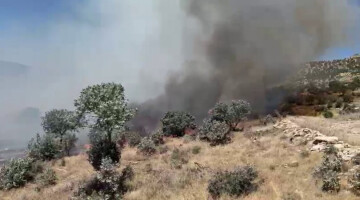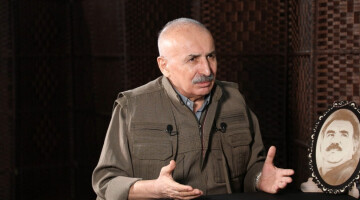On the seventh anniversary of the Suruç attack, the colonialist Turkish state forces carried out another massacre in the village of Perex in the Bamerne district of Zakho in southern Kurdistan (northern Iraq). There was a storm of indignation in the region following the deaths of numerous Arab people from Baghdad and neighbouring provinces who were shot at by howitzers during a picnic at a touristic site.
Nine months have passed since Iraq's parliamentary elections on 10 October 2021. In those nine months, neither a government could be formed, nor a president elected because of direct or indirect interventions by the powers that wanted to gain political influence in Iraq.
In 2003, a federal Iraqi state was established in place of the fascist Ba'athist regime that ended with the execution of Saddam Hussein. During this period, the political map of Iraq, which consisted of only one actor, changed and rebuilt itself. The main dynamic of Iraqi politics started a war to gain a stronger role in the Iraqi state and government, which transformed into a federal structure, making the current delicate process even more fragile. The fragmented and cooperative understanding of politics among the forces that form the backbone of the state led to the development of a new political culture. Thus, two different axes began to emerge in domestic politics.
On the one hand, the axis representing the interests of USA-friendly states like Turkey in the Middle East, and on the other hand, the axis led by Iran but also including the Eastern bloc powers with the same imperial goals. The new situation that emerged with the US intervention served mainly to expand Iran's sphere of influence, while the US was demonised more and more every day, as all its interventions in the region were to the detriment of the peoples. The seeds for today's chaos in Iraq were sown during this period.
Three main elements in Iraq
In this new era, the traditional political forces, the religious and ethnic structures of Iraq, began to divide their influence and military power among themselves. However, the division of power has exacerbated the conflicts instead of resolving them.
In the current situation, the three main elements and determinants of Iraq's internal politics, which has become open to foreign intervention, are Shiites, Kurds and Sunni Arabs. These forces also form the deepest fault lines in Iraqi politics. The fragmentation of each of these structures into parts within themselves and the fact that each part considers itself the main force on its respective front has led to serious contradictions and irreconcilable differences. When this situation is combined with the deep structural problems of the country and the endless interventions of foreign powers, it naturally leads to a multiple crisis that spreads to all spheres of life. The real cause of the crisis remains the unresolved structural problems of the state.
Since 2003, a balance of power has been established in the state of Iraq in accordance with the constitutionally guaranteed distribution of power, with the Kurds as president, the Sunnis as speaker of parliament and the Shiites as prime minister. Over time, however, the Shiites have split and fragmented as pro-Iran and pro-Saudi Arabia, increasing the number of parties and groups vying for the post of prime minister. The separate aspirations of the Kurdish parties for the presidency have also sparked a new struggle and led to a split between the various fronts.
This internal fragmentation, the internal rivalries of the increasing number of parties and groups and the problems caused by these rivalries have led to a situation of constant political conflict. This division and tension on the Kurdish and Shiite fronts have weakened the search for a common sense negotiated solution due to the subjective conditions, and the solution has been seen in social and military empowerment. These structures, which used to operate mainly with national and religious sentiments, have over time replaced the power and motivation for national will building with party and group interests. The same mentality and politics developed in other Sunni and Kurdish political structures, and this fragmentation of politics was reflected as greater chaos and crisis at the grassroots level of society.
Internal division opens up space for the Turkish state
The people are in the middle of a war movie that has no finale and whose script was written by well-known hegemonic powers. All the other peoples of the region, especially the Iraqi people, have been made participants in this war that is not in their interest. The idea that whoever is not a party in the Middle East will be eliminated is indeed a very dominant idea. And that is not wrong. However, in the current situation, people see the people and actors who put the interests and concerns of foreign powers first and have an understanding of politics that serves their own family, party and dynastic interests second, as the main reason for the social chaos and crisis they are in.
So the fact that today the Turkish state is occupying ever larger parts of Southern Kurdistan, establishing military bases, causing massacres in towns and villages with artillery and air strikes, and that Iraq is unable to show a deterrent reaction to this as a state, is precisely the result of this internal political and social division.
If Iraq really does not want the Zakho massacre to be repeated and if it wants to end the current state of occupation by the Turkish state, it must adopt a more resolute stance. Otherwise, the anti-people policy of the Turkish state will be the cause of even more suffering and losses, and the Turkish state will become a permanent occupying power in Iraq.
It should also be known that the massacre of Zakho is a continuation of the massacres of Kendakolê in 2000, Kortek in 2011 and Zergelê in 2015. If those responsible are to be held accountable and new massacres prevented, the current occupation of the Turkish state in southern Kurdistan must be ended.

